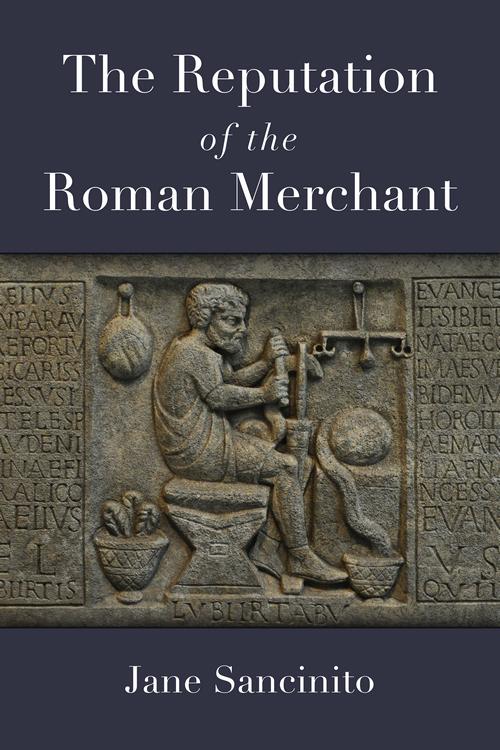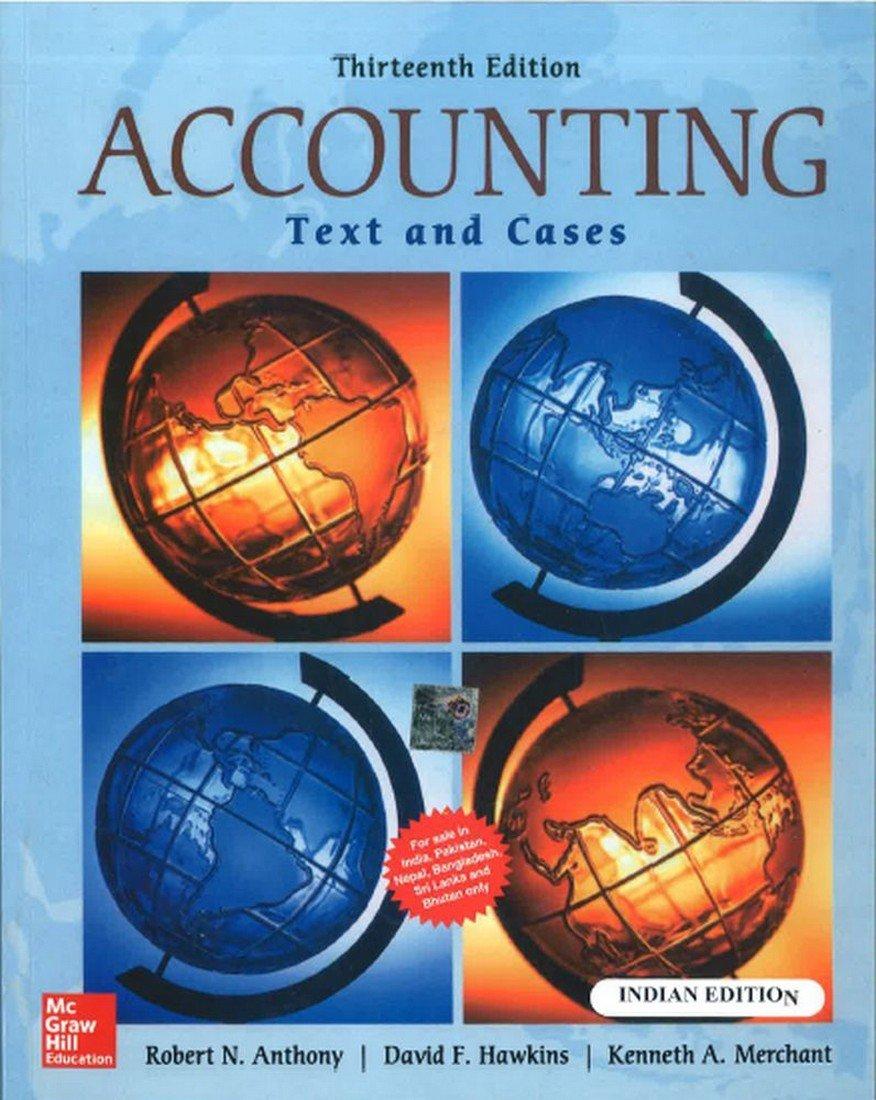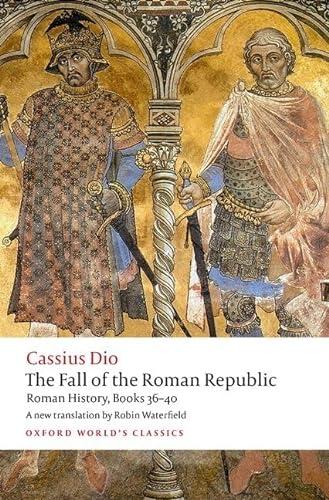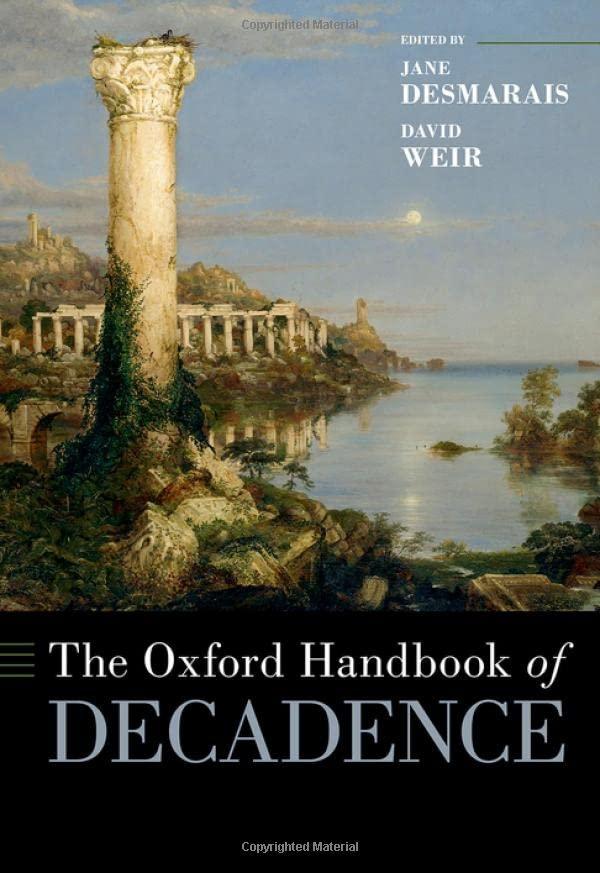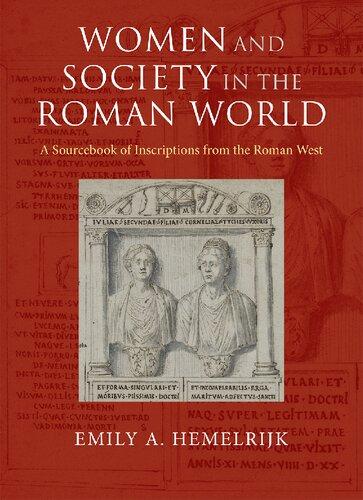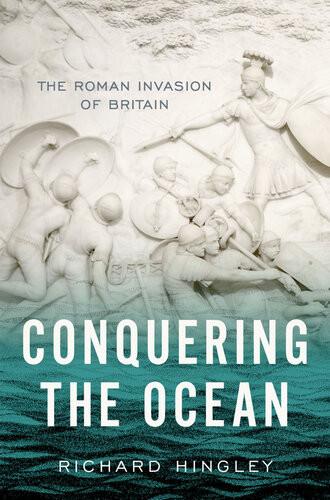Acknowledgments
Just as footnotes and bibliographies acknowledge intellectual debts, there are a host of figures who are owed gratitude at the conclusion of any book project. It is a privilege to take a moment to offer my thanks here for the many and varied kindnesses I have been shown over the five years I have been writing this book and over the decade it has taken to transform my first, niggling questions into something concrete and coherent.
My first thanks go to Cam Grey, who supervised the dissertation from which this book originates. No adviser could have better balanced the push and pull required to get my thoughts in line or been more firmly on my side throughout the highs and lows of discovering who I was as a scholar and young adult. Thank you, Cam, for giving me both direction and room to grow.
Thanks are naturally owed to my entire dissertation committee: Cynthia Damon, Ann Kuttner, and Alan Stahl. Each offered me valuable comments, kindness, and support and I hope that their good influence continues to be visible in this finished project. Special thanks are due to Alan, who came down to Philadelphia for my defense and cheered me on, even though monetization did not end up being a major part of that project, and who introduced me to the inimitable and dauntless Ellen Bauerle before this book was even a twinkle in my eye. My debt to her, and the reviewers she enlisted, is visible on every page. Thank you.
My graduate cohort, understood in the broadest possible terms, were a huge and inexhaustible source of support and comfort to me during my time at the University of Pennsylvania and beyond. I offer special thanks to Eyal Meyer, Marcie Persyn, Jordan Rogers, Petra Creamer, Jillian Stinchcomb, Jae Hee Han, and Alexander Ramos. They, and so many others at other institutions, have reaffirmed my belief that no one does anything alone and that our greatest resource, against all odds, is always each other.
I owe a big debt to my colleagues at Oberlin College, Andrew Wilburn, Kirk Ormand, Chris Trinacty, and Ben Lee, who guided me through the earliest stages of pitching this book to editors and gave me, with the financial support of the Thomas F. Cooper Postdoctoral Fellowship, the time to think about how the long-winded, clunky dissertation might be transformed into something readable and clear. Thanks are also due to all my wonderful students there, especially Emily Hudson, Emma Glen, Sarah Passannante, and Justin Godfrey, for their kindness and overwhelming support, especially as I pulled my first, real draft of Reputation together.
My current colleagues and friends at the University of Massachusetts Lowell deserve all my gratitude and already have my deepest respect as generous scholars and inspiring educators. Special thanks to the chair of the History Department, Christopher Carlsmith, and to Abby Chandler, whose friendship and mentorship managed to make moving to a new institution, even in the middle of a global pandemic, a joy. To my cohort of pandemic-hires at UML: thank you and keep your heads up!
Though they are (to me) nameless and faceless, I also want to express my gratitude to the brave and determined souls who worked to unionize the faculty of the University of Massachusetts Lowell. Their efforts secured the rights I now enjoy as a worker, including the junior sabbatical I used to finish the last edits on this manuscript, so that I can study workers who lacked those privileges. Finally, I am unspeakably grateful to all my friends and family. Thanks to Mollie Celnick, who welcomed me to Massachusetts with open arms, to Joanna McCunn, Luke Tatam, Andreas Televantos, Mercedes Broadbent, and Emily Barritt, who have been with me since before I began graduate school and whose continued friendship sustains me, and to Nancy Ameen, Laurie Jensen, and Donna St. Louis, who have known me at every stage of this project and decided, despite everything, that they could still have a fondness for me. I will conclude my thanking with my new goddaughter, Astrid, whose life I hope will be easy and happy and fulfilling, my grandmother, whose love was a constant and whose strength of character inspired me, and my parents, who have been so united in their confidence in me that I have almost started to believe it myself. They know, more than anyone, where I have struggled, where I have stumbled, and what it has taken to get back up and get back to it. May everyone who reads this have people like them in their corner.
Introduc�on
Early in the third century CE, the sophistic writer Philostratus began a treatise on the nature of heroism, engaging with the Homeric tradition and analyzing the presentation of valor in the Iliad and Odyssey. The text was designed as a dialogue between a vinedresser and a Phoenician merchant, who meet by chance in Thracian Chersonese and strike up a conversation. Their discussion takes the tomb of the hero Protesilaus as its starting point, but before the discussion begins in earnest, Philostratus first establishes a thin pretense for their meeting: the merchant is waiting for a good omen to sail and the vinedresser is interested in him as a, presumably, rare foreigner. Despite the work’s purpose, the two do not immediately fall into pleasant conversation about heroes and gods, first, in fact, the vinedresser effectively insults the merchant:
VINEDRESSER: Stranger, you are at least skilled in nautical affairs, for you have even designated Cynosura as a sign in the sky, and you sail by reference to it. Yet just as you are praised for your sailing skill, in the same way you are stereotyped as moneylovers and greedy rascals because of your business dealings.
PHOENICIAN: But aren’t you also money-loving, vinedresser, living among these vines and presumably seeking someone who will gather grapes after paying a drachma for them, and looking for someone to whom you will sell sweet or fragrant wine, which, I think, you will say you have hidden, just like Maron?
VINEDRESSER: Phoenician stranger, if somewhere there are Cyclopes, whom it is said the earth nourishes, though they neither plant nor sow, there things would grow unattended, even though they belong to Demeter and to Dionysos, and none of the produce of the earth would be sold. Instead, everything would be produced without price and common to all, just as in the agora of the pigs. But wherever it is necessary for someone to sow, plow, plant, and suffer one toil after another, because they are bound to the land and obedient to the season, there it is necessary to buy and sell. For money is needed for farming, and without money, you will not feed a plowman nor a vinedresser nor a cow or a goatherd, and you will not have a krater for drinking or pouring libations. Additionally, the most pleasant thing in farming, gathering fruit, one must pay to do. Otherwise, the vines will stand idle and yield no wine, as if they had been cursed. Stranger, I have said these things about the whole crowd of farmers, but my way is much more honorable, since I do not associate with merchants, and I do not know what a drachma is. I trade a bull for grain and a goat for wine and other such exchanges, and I allow only a little haggling.
Page 3 →The exchange reflects on the nature of the work that the two men do, on the interrelation of all economic activity, and on the attitude of Roman society toward merchants and money. The men are a relatively unusual pair of interlocutors in Roman literature, which tends, like the vinedresser, to hold retail and artisanal work at a distance from the agricultural world. The latter sphere is one that was deeply respected by the ancient world at large, while the former, as the vinedresser states, was associated with profit and greed. The
merchant pushes back against the accusation relatively gently, by reminding the vinedresser that he, too, must buy and sell to run the vineyard, and makes the case that these vices are shared ones, rather than denying their presence in him and his work.
In response, the vinedresser assures the merchant that he is not “moneyloving” at all. He only trades in kind for what he needs, and he does not associate with merchants. To do so, it is implied, would be wrong in some way, even if it seems to be common practice. Perhaps it would take him too far away from the lofty ideas that he is about to discuss or would place greater emphasis on profit than on care for the land, but whatever the reasoning, the vinedresser is quick to draw the line: on one side, he, an agriculturalist, sits, while merchants and tradesmen, like his new Phoenician acquaintance, remain on the other side. Though the two would make for natural allies, the producer and the wholesaler, the vinedresser maintains his distance and will not associate with such people, beyond the present conversation.
This divide is typical in Roman writing and the vinedresser sums up the matter nicely: while merchants were not believed to be totally without skill, they were known to be greedy, and, beyond that, generally dishonest in their pursuit of gain. Some were undoubtedly worse than others, but no merchant could be viewed as a respectable, trustworthy, or reputable member of society. Both elite authors and common people recognized that trade was necessary, but viewed it as a necessary evil, a practice that invited vice, and which upstanding members of society avoided as much as possible. Philostratus represented this attitude in a different case, with the story of a young elite Spartan who was making plans to go into trade to make his fortune. In that case, the
philosopher Apollonius told the young man “for a man who is a citizen of Sparta and the child of forebears who have lived in the heart of Sparta, to hide himself ‘in the hold of a ship,’ forgetting Lycurgus and Iphitus, and thinking about his cargo and nautical skills, is a disgrace.” He stressed that trade would destroy the nobility of the family line, bring shame upon the man’s good name, and squander the natural benefits that the Spartan enjoyed as a man of high birth.
Page 4 →Of course, people of all ranks took part in trade. Figures like the vinedresser were not divorced from the economy simply because they bartered rather than took money for their goods, and those who did not sell products often sold their labor or services instead. Roman elites publicly despised trade and those who made their fortunes through it, but nevertheless diversified their property to profit from shipping or artisanal production. Most opted to use slaves or freedmen to carry out this work, the better to keep their own hands clean, but they nevertheless directly profited from the business. The major economic difference between the senator and the vendor in the forum was one of scale and stigma, not of practice, and while the former might be known as a leading figure in society, the latter would be shamed for his greed and baseness.
Infamy surrounded trade and worked in tandem with a host of economic challenges to make life for Roman merchants extremely difficult. The Phoenician merchant of the Heroicus not only faced the stigma of being seen as greedy by, in this case, a potential source of goods, but he also managed a litany of other concerns, ranging from the weather and state of the sea to the price of goods in numerous ports, as well as the trustworthiness and reliability
of his own trading partners. Information in the ancient economy was unevenly available, risks were great, and transaction costs were high. Merchants were at a major disadvantage, with most operating at margins tight enough that a single bad deal might shut down their small businesses for good. We can trace many individuals from Roman Egypt who ran single-donkey operations and whose sudden appearance and disappearance from our records might well reflect Page 5 →gambles they made on their futures and their ultimate failure to thrive in a competitive and unstable market.
Periodic efforts made by the state to restrict the work of merchants added another layer of complication to operating a business. Though enforcement was uneven and unreliable, the Roman state occasionally passed laws to restrict the social and economic mobility of merchants. New regulations cut both ways, potentially offering helpful structures and increasing transparency, but also posing a risk that might upset the delicate balance of trust and tradition upon which economic activity depended. Rather than offering a neutral judgment, the state often echoed the commonplace stigma against merchants and amplified the pressures put upon traders by society overall. Thus, the words and actions of state agents and market officials often shared the bias against merchants that was found in the gossip on the street. Formal legislative efforts to restrict and direct merchants not only complicated the physical work of trade, but also normalized the social isolation that merchants could face and hindered merchant access to many kinds of public support.
In combination, these difficulties potentially held the power to grind trade itself to a halt. Working as a merchant was highly disincentivized and customers were extremely wary of their trading partners. Commercial
exchange requires a baseline of mutual tolerance, and it benefits from a more general culture of trust and acceptance. This seems to have been largely absent from the Roman world. Instead, commerce was viewed as a competitive, if not combative, activity that most tried to avoid. Romans construed trade as a zerosum game, in which merchants were not only frequent winners, but also frequent cheaters, who made sure that the odds were in their favor. It was difficult, if not impossible, for a Roman to imagine that a customer or producer might “win” in a contest with such immoral figures. Though fictional, the vinedresser’s willingness to tell a merchant, to his face, that he and his colleagues were greedy and to be avoided, exemplifies the feelings of this society. The Roman world not only did not understand the challenges of working in trade, but it also lacked sympathyPage 6 → for those who did this labor. Taking these emotions to an extreme, it would be logical for no one to engage with merchants, and if they chose that path, the whole economic system of redistribution, production, and services would cease to exist. Fundamentally, if a vinedresser will not trade with a merchant, who will drink the wine?
Merchants had every reason to try to find other professions, to work hard until they could buy their way into a more respectable field, like agriculture, yet our evidence shows that they not only persisted in the face of this adversity, but they also often proclaimed their work loudly and with pride. In fact, the identification that merchants offer for themselves is often the best and only means to find them in our extant sources. While texts like Philostratus’ apply this identity to figures like the Phoenician, in nonfictional contexts it is generally merchants who adopt some version of the label for themselves, naming a specific trade and identifying themselves by their work. Of course, 9 10 11
“merchant” included numerous professions, and a range of social and economic positions, including some extremely wealthy and prominent people along with many who continually struggled at the edge of poverty and lived in relative obscurity. Nevertheless, every person within this category experienced some share of the social stigma that Romans attached to their work, and many found reasons to connect their identity and character to their profession.
In English, the term merchant may be utilized as a category to gather these diverse figures, in that they are united by a commonly shared goal of receiving payment for some form of goods, skill, or service. “Merchant” gathers many kinds of work under its domain, including many individuals who only periodically dabbled in merchant-hood, selling goods on the side while primarily being engaged in agriculture, just like, and despite the protestations of, Philostratus’ vinedresser. Such a definition perhaps risks being too capacious, but it helps us to see “merchant” as part activity and part identity, thereby clearing the path to an analysis of the consequences of, on the one hand, doing merchant work, and, on the other hand, being recognized as a merchant in Roman society.Page 7 → While most merchants exist at the center of that Venn diagram, there was a distinction made in Roman culture between the casual or occasional merchant, someone for whom necessity sometimes compelled this kind of work, and the full-time retailer, artisan, or transporter, who actively and consistently chose this profession and lived with the full force of the stigma attached to it.
There is a real variety of purpose that lingers below the surface of “merchant” as a catch-all term, not only in English, but also in Greek and Latin, which used general terms like mercator, negotiator, ἔμπορος, or κάπηλος, along with
numerous specific words for particular trades. This variety of terminology is both a help and a hindrance, in that it reveals a massive range of lived experiences, each shaped by their own unique set of circumstances, while being united by common anxieties and cultural perceptions. Thus, Philostratus’ Phoenician merchant faces similar accusations of greed and deceitfulness as Roman prostitutes, and while Roman barbers might be chastised for their chattiness and tanners for their bad smell, both are part of a common “mob” that were kept at a distance by “polite” Roman society. These commonalities, borne out by Roman stereotypes and prejudices, gave merchants their common purpose: to rise above the low estimation of their communities. In many cases, it drove merchants to embrace their professions, displaying them prominently as the core of their identities and complementing them with forms of self-praise and self-promotion.
Critically, merchants did not attempt to brazen out the stigma. They did not seek to reject societal norms or even to reclaim social and economic power by embracing Roman stereotypes. While either might have been viable options in the right circumstances, merchants instead opted to insist, through quiet, consistent behavior, that they and their work were worthy of respect. This effort did little to dislodge the stigma against trade, which was pervasive and had been entrenched in Mediterranean society since at least the time of Homer, but it was often possible for merchants to convince others, on the small scale, that they themselves were respectable, honest, and reputable.
Roman Reputa�on
At the heart of the matter lies reputation. Merchants, artisans, and service providers all believed, at some conscious or unconscious level, that they were good people, and that those around them also knew it. They believed themselves to be virtuous and deserving of support from their friends, neighbors, and customers, who witnessed and understood their efforts to be honest and responsible. Even in the face of generalized prejudice and pervasive negative stereotypes, individual merchants believed that they could be recognized as an exception to the rule on account of their personal goodness, professional standards, and essential roles in the community. Accordingly, it was theoretically, and even practically, possible to be the rare, good merchant among a crowd of cheats and liars. One’s claim on that position was not something that could be relied upon to be stable or permanent, but, with sufficient work and luck, a merchant might achieve a good reputation, and once acquired and properly maintained, that reputation could be used to overcome the stigma against merchants, to reduce an individual’s transaction costs, and to smooth the way to a successful career.
Merchants understood this and worked hard to build and maintain a reputation. They knew that if they demonstrated their virtues and avoided any public display of their vices, they could harness the goodwill of those around them, securing the personal trust of their communities, thereby rendering stereotypes less harmful. Romans, in general, understood that reputation was a valuable commodity, not just socially, but economically. Perhaps it is most concisely treated in words attributed to the aphorist Publilius Syrus: “a good reputation is better than money.” Reputation gave a merchant more economic benefit than an influx of wealth. When properly cared for, a
reputation could secure loans or major contracts, could help find apprenticeships for sons, husbands for daughters, could prevent scandal, or offer protection against one’s enemies.
Still, reputation required work. In the face of negative stereotypes, no merchant began their career with a perfect reputation, and maintaining a good name throughout a career was a challenge that required sacrifices. At times, the pursuit of a good reputation dissuaded a merchant from taking the most Page 9 →profitable course of action, or the most satisfying one. A figure like the Phoenician merchant might have wished to take offense at the vinedresser’s words, yet Philostratus depicts him as conciliatory, trying to soften the opinion of this potential business partner. Though the merchant is not successful in winning over the man’s business, he is still careful not to offend him or to present himself as quick-tempered or untrustworthy. Many merchant choices were structured by concern for their reputations, and it was reputation that underpinned the strength of other social and economic norms in Roman society. Fear of losing a good reputation, or developing a bad one, pressured merchants to avoid certain kinds of conduct, and encouraged them to behave in socially acceptable ways. The Phoenician merchant chooses not to give the vinedresser the last piece of his mind, consciously or unconsciously believing that doing so could jeopardize his good name, while being pleasant, even to this rude man, could only reflect well on him. Reputation offered both a carrot and a stick, a potential reward and a real and present threat. In this way, it acted with the force of an economic institution, laying out a path merchants might follow to maximize their chances of occupying a respected place in society and gaining many different social and economic benefits.15
Reputation did not have this institutional force for merchants alone. Across Roman society, people were incentivized to care about how they were perceived by others and everyone carried some fear that they would be shamed and fall into disrepute. While reputation was not unique to merchants, this group was among the most despised in Roman society, and this bias made personal Page 10 →reputation and social standing all the more important. They could not rely on having the benefit of the doubt in their society, so they had to invest in strategies that would build up personal networks of trust. It was also reputation that enabled trade, in a general sense, to happen at all. A merchant’s good reputation made it possible for trading partners to count on one another, even if other mechanisms that could have increased trust were weak or lacking.
Only recently have historians been able to view reputation in this light. This perspective is the culmination of developments in multiple fields of study that have made it possible to view an individual’s choice to self-identify as a merchant as the statement of pride that it was, or to understand that merchant behavior and choices were directed by their concern for their reputation. The intersection of social and economic history, especially with regard to merchants, has been a relatively recent development in the field, and just a handful of works since the 1980s have pioneered the study of merchants as both social and economic figures simultaneously. Earlier debates over the nature and scale of the Roman economy largely left the agency of tradesmen to the side, and even within most modern considerations, which have adopted a form of New Institutional Economics as their basis, merchants and other economic actors are generally held to be constrained by systems larger than 16 17 18
themselves, like the state and its coercive powers, rather than viewing them as participants in the social and normative structures to which they both contributed and were obedient.
Within the field of social history, merchants have also largely been considered within the framework of their relationship with the state. The legal status Page 11 →of merchants has been of preeminent concern, and substantial work has been put into understanding two specific issues: the restrictions placed upon elites who wished to take part in economic activity, and the limitations on freedmen and enslaved people as they pursued their trades. Freed people, in particular, have received substantial attention, as the study of nonelite subjects has become more mainstream and the prominence of freed people in trade has been recognized beyond its place as a common trope in Roman literature. It is only recently that ideas of reputation have been considered by this field, most prominently in Sarah Bond’s recent examination of the nature of taboos surrounding specific trades. Even in that excellent case, legal stigma, infamia, remained a critical element of her analysis, rather than studying reputation as a system for incentivizing good conduct that was enforced as much by peers as by social superiors.
While the Roman state did structure both the economy and Roman society, the force of the state in the lives of merchants has been somewhat overestimated. Evidence of merchant and state interactions is plentiful, but there is also a substantial bias in favor of its preservation, as pronouncements of the state were more likely to be memorialized in stone or other lasting materials, and the merchants who dealt with the state were, themselves, often more affluent than those trading exclusively in the private sector.
Furthermore, it is increasingly clear that the enforcement of state regulations was highly irregular, localized, and, critically, embodied by officials who were themselves subject to the same social forces as everyone else. In light of this, the greatest progress in understandingPage 12 → Roman merchants in recent years has come not from the study of legal structures, but from analyses of private modes of organization, especially the study of merchant associations and small, internally regulated communities. Recent work by Philip Venticinque, Cam Hawkins, and Taco Terpstra, among others, has shown that merchant lives were shaped by interpersonal connections, networks of mutual obligation, and nonstate institutions that not only built and maintained trust, but also developed extralegal systems of punishment and accountability.
There is some momentum growing behind these ideas in ancient history, though merchant reputation as an institutional force has not yet been studied on its own. Still, “reputation as institution” is a powerful explanatory tool that is very much in line with the conclusions of these most recent works: that ancient merchants monitored each other and structured their business lives and obligations around the ties that bound them to one another, that they depended upon and utilized the information that they gathered and circulated about the relative trustworthiness of those around them, and that behaving in a way that conformed with social norms benefited merchants in the short and long term, as it served as a reflection of their character to the community around them. Reputation forms the core of that morass of concern and effort. It is an institution that is both inward looking, focused on the identity of the actor, and outwardly determined, as it is witnessed, assessed, and spread by an audience of community members of all kinds.
Page 13 →Because reputation operates both internally and externally, it is a concept that can be challenging to define. In English, one “has” a reputation, generally “for” something—whether virtue or vice—that is known to others. Simultaneously, however, it is possible to say that someone’s reputation “is” good, bad, or some other descriptor. Recent work on reputation has rightly complicated the matter further by integrating concepts of reputational networks and audience theory into our understanding, explaining that reputation is a flexible, dialectical, and elusive concept that neither the audience nor the reputed ever grasped in full, but rather was continually shaped and refined by new information as it was communicated to a variety of audiences over time.
Historically, theoretical treatments of reputation have straddled several fields of study. The earliest scholarship on the subject may be dated to the late nineteenth century and is epitomized in the work of the psychologist William James. James’ work framed reputation as one manifestation of humanity’s “social selves,” which could be as numerous as the social groups that a person encountered and depended not only on that individual’s actions, but, more broadly, on how he or she was perceived and understood by others.
Following James, social scientists took up reputation as a useful concept for interpreting relationships and social decision-making. Most modern work on reputation owes some debt to Erving Goffman and his wide-ranging studies of self-representation, social stigma, and communication. In each case, social personae, whether adopted and presented by the actor, or assigned and attributed by others, take a position of prominence in Goffman’s interpretation of how humans interact with one another and carefully select and construct who they want to be. Reputation is closely related to Goffman’s
assessments of identity, though unlike many of Goffman’s cases, reputation is critically dependent on external assessment, in that it is essentially the self as it is perceived and understood by others. Building on this work, through the mid-twentieth century, advancements were steadily made to improve our ability to assess and Page 14 →map the extent and spread of reputation, largely through experimentation in the social sciences, rather than via case studies from historical moments.
Recent work, and especially that of Kenneth Craik and Gloria Origgi, has sought to expand the theoretical framing of reputation still further, and they have done so in two ways that are essential to this work. Craik has expanded on the importance of social networks to the formulation of reputation(s), and developed a model that explains the, at times, long delays between information about reputation being received and dispersed. His work highlights how a community may act as “storage” for reputation, only “activating” and working to spread reputation information when circumstances require it. Critically for this work, given the prevalence of funerary evidence for Roman merchants, Craik’s argument is one of a few to take on the challenge of posthumous reputation, both as a puzzling phenomenon interconnected with our ability to process our own mortality and as a strategy for mourners and the beneficiaries of reputation in the next generation.
Origgi’s approach is more individualistic, and consequently more able to assess the role of reputation in the decision-making process of a particular person, especially in economic contexts. She has stressed that investment in and concern for reputation is, or can be, a rational choice that need not conflict with traditional visions of economic rationality. Nothing in the consideration
